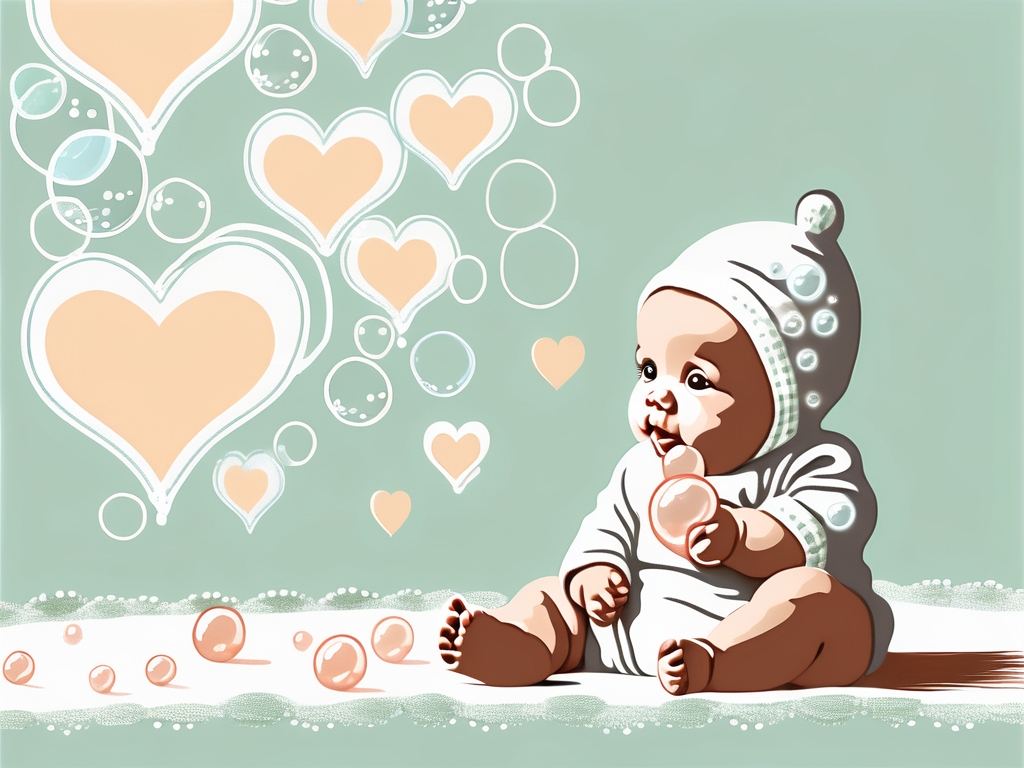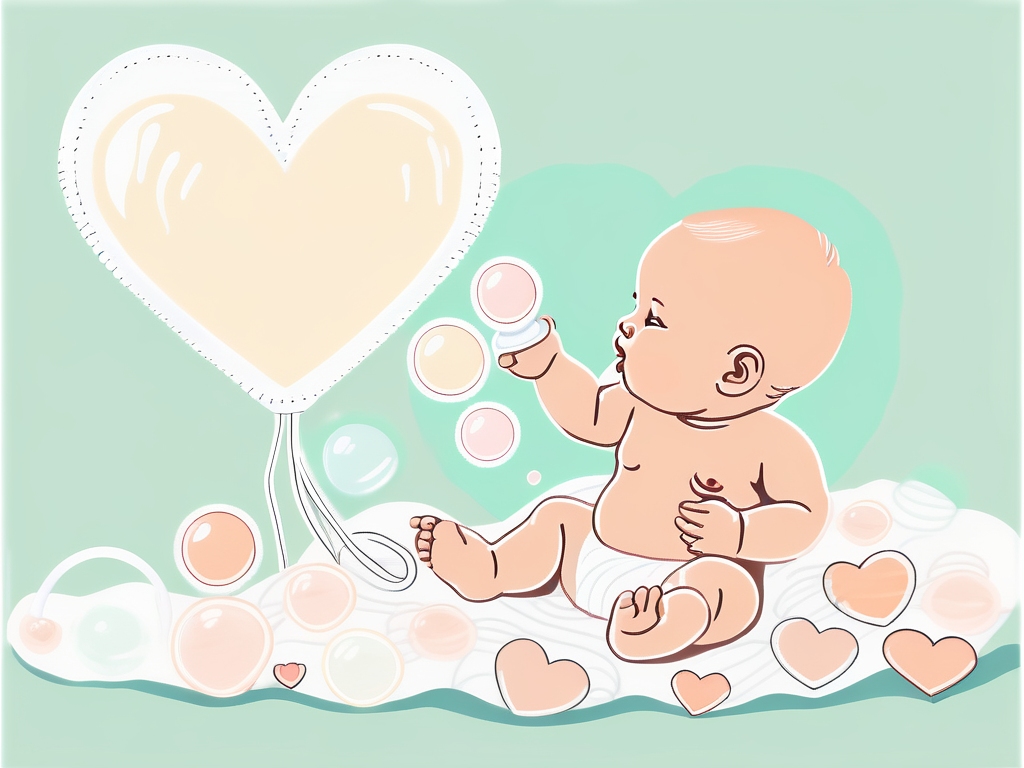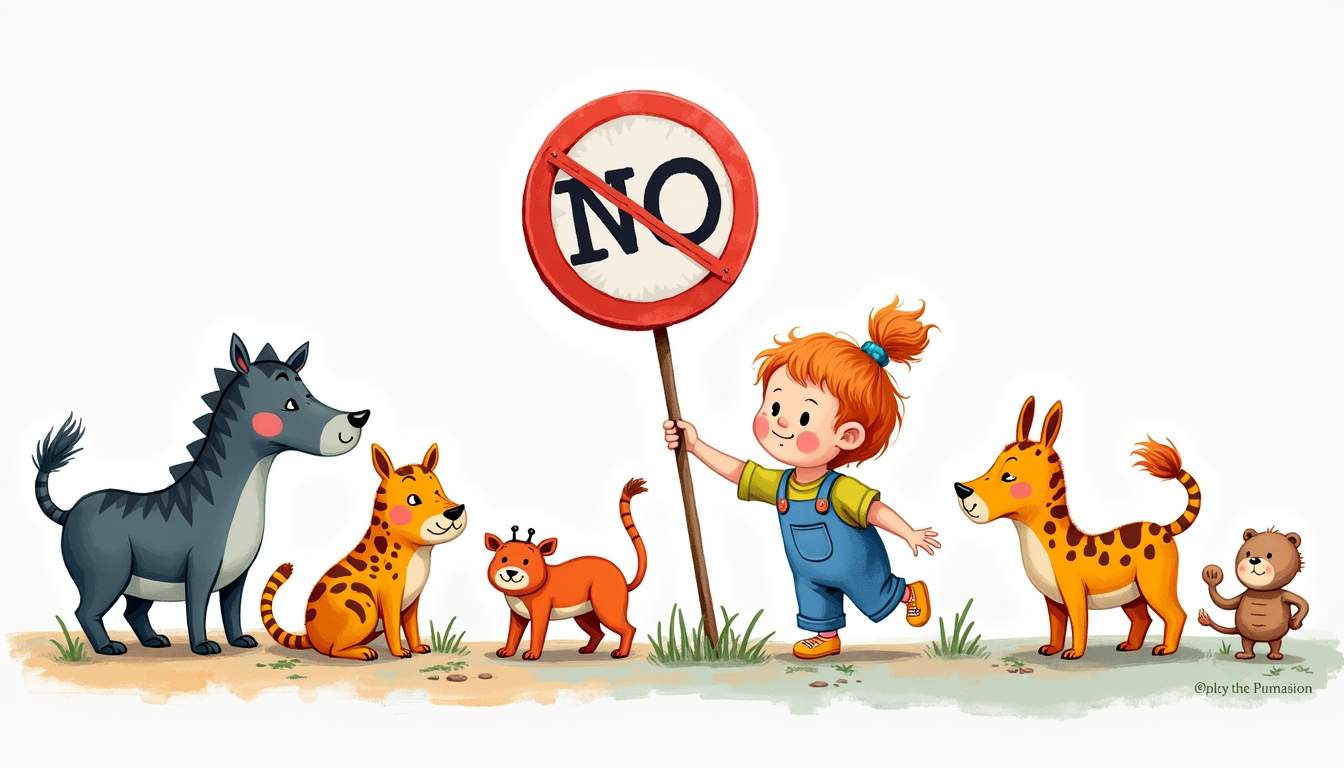It’s a heartwarming question that many parents ponder—do babies feel love when you kiss them? As they shower their little ones with affection, parents often wonder if their kisses are truly felt and understood by their infants. In this article, we will delve into the fascinating world of infant perception, emotional development, and the impact of parental affection on babies. By understanding the science and psychology behind these questions, we can gain valuable insights into the deep bond between parents and their babies.
Understanding Infant Perception
Before we can explore the emotional realm of babies, it is important to grasp the intricate nature of their sensory development. From the moment they are born, infants rely heavily on their senses to make sense of the world around them. Their sensory system is in the early stages of development and continuously evolves in response to their experiences.
The Science Behind Infant Sensory Development
Research has shown that babies are born with the ability to see contrasting patterns and react to sound. As they grow, their vision improves, and they become capable of recognizing faces and objects. Similarly, their sense of touch develops rapidly, making physical contact a significant factor in their perception of the world. In fact, this physical contact plays a vital role in how babies interpret and respond to affection, such as kisses.
How Babies Interpret Physical Affection
Babies are highly perceptive and responsive to physical touch. Studies have shown that gentle touches and kisses can evoke a sense of comfort and security in infants. When parents shower their infants with affectionate gestures like kisses, the baby’s sensory system is stimulated, and their brain releases oxytocin—a hormone associated with feelings of love and bonding.
Furthermore, kisses and other forms of physical affection help babies develop a sense of trust and emotional security. Babies rely on their parents as primary caregivers, and affectionate gestures solidify the bond between them, fostering emotional well-being.
But what about other senses? It turns out that babies’ sense of smell is also highly developed. They can recognize their mother’s scent within a few days of birth, which helps them form a strong attachment. This ability to distinguish familiar scents from unfamiliar ones is a crucial survival instinct that aids in their early development.
In addition to smell, taste is another sense that plays a significant role in infants’ perception. Babies have a preference for sweet flavors, which is believed to be an evolutionary adaptation that ensures they seek out nutrient-rich breast milk. This preference for sweetness gradually diminishes as they grow older and are introduced to a wider range of tastes.
The Emotional World of Babies
Beyond the realm of perception, emotions play a pivotal role in shaping a baby’s early development. While babies may not express love in the same way adults do, their emotional experiences are indeed profound and influential.

The Role of Emotions in Early Childhood Development
Emotions serve as a crucial foundation for a baby’s cognitive and social development. Babies experience emotions such as happiness, sadness, fear, and even love. These emotions are intricately tied to their overall well-being and shape their capacity for future relationships.
Imagine a baby’s face lighting up with joy as they see their parent’s smiling face. This moment of happiness not only brings warmth to the baby’s heart but also helps them develop a sense of trust and security in their environment. It is through these emotional experiences that babies learn to navigate the world around them.
Research suggests that babies are born with some innate emotional responses, which are further shaped by their early experiences. Understanding and responding compassionately to their emotional needs help establish a secure attachment between babies and their parents.
When a baby cries, it is not just a signal for hunger or discomfort. It is also an expression of their emotional state. By responding promptly and soothingly to their cries, parents can provide a sense of comfort and reassurance, fostering a strong emotional bond with their little one.
Interpreting Emotional Responses in Infants
Interpreting babies’ emotional responses can be challenging, as they may not express themselves in ways that adults fully understand. Baby cues such as facial expressions, body movements, and sounds can provide valuable insights into their emotional state.
Imagine a baby furrowing their tiny eyebrows and pouting their lips. These subtle facial expressions can indicate that they are feeling sad or upset. By recognizing and acknowledging these cues, parents can provide the necessary support and comfort to help their baby navigate through these emotions.
While it might be difficult to explicitly gauge whether babies feel love when kissed, their responses can be indicative of positive emotional experiences. Often, babies respond to kisses with smiles, coos, or a general sense of contentment, suggesting that their emotional needs are being met.
When a parent showers their baby with affectionate kisses, it not only creates a bond between them but also helps the baby feel loved and cherished. These moments of connection and warmth lay the foundation for the baby’s emotional well-being and their ability to form healthy relationships in the future.
The Impact of Parental Affection on Babies
Parental affection has far-reaching effects on a baby’s overall development, from emotional well-being to cognitive abilities. The bond formed through affectionate gestures, including kisses, lays the foundation for a child’s future relationships and shapes their understanding of love and intimacy.

The Connection Between Physical Affection and Emotional Bonding
Physical affection, such as kissing, serves as a powerful means of communication for babies and parents. It helps establish and strengthen the emotional bond between the two. Research has shown that infants who receive consistent and affectionate touch from their parents tend to develop a stronger sense of security and trust.
When a baby feels the warmth of a parent’s touch and experiences the gentle caress of a kiss, their brain releases oxytocin, often referred to as the “love hormone.” This surge of oxytocin creates a sense of comfort and contentment, fostering a deep emotional connection between the baby and their caregiver.
A secure emotional bond plays a vital role in a baby’s overall development, promoting healthy social interactions, and enhancing their ability to form secure relationships throughout their lives.
The Long-Term Effects of Parental Affection
The effects of parental affection extend beyond infancy, influencing a child’s emotional well-being in the long run. Children who grow up in an environment where they receive consistent love and affection tend to develop higher self-esteem, healthier emotional regulation, and better overall mental health.
As babies grow into toddlers and beyond, the impact of parental affection continues to shape their emotional development. When parents shower their children with love and affection, they create a safe and nurturing environment that fosters emotional resilience. This emotional resilience serves as a protective factor against stress and adversity, allowing children to navigate life’s challenges with greater ease.
By showering babies with affection, parents cultivate a nurturing environment that supports their emotional and psychological growth, enhancing their ability to form deep emotional connections and experience love in the future.
The Language of Love for Babies
Love is not only expressed through words but also conveyed in subtle non-verbal ways. Babies, despite their limited vocal abilities, possess a unique language of love that parents can tap into.
Non-Verbal Communication with Infants
Babies are highly receptive to non-verbal cues from their parents. Communicating love can involve maintaining eye contact, gentle caresses, holding, and, yes, kissing. These non-verbal gestures create a sense of safety, comfort, and love that resonate deeply with babies.
How Babies Express Love and Affection
While babies may not express love in the same way adults do, they have their ways of showing their affection. Smiling, cuddling, babbling, and even imitation are all signs that babies are actively engaged in building emotional connections and experiencing love.
It is through these non-verbal interactions and relationships that babies develop trust, emotional intelligence, and the ability to form attachments.
Nurturing a Loving Relationship with Your Baby
Building a strong and loving relationship with your baby is a journey that requires ongoing effort and understanding. There are several ways that parents can foster and nurture this bond, ensuring a lifetime of love and affection.

The Importance of Consistent Affection
Consistency is key when it comes to showering your baby with affection. Regular physical contact, such as cuddling and gentle kisses, helps create a sense of predictability and security for infants. This consistent affection reassures babies that they are loved and cared for.
Tips for Building Emotional Bonds with Your Baby
1. Engage in skin-to-skin contact through activities like baby massage.
2. Talk and sing to your baby, using soothing and affectionate tones.
3. Respond promptly and sensitively to your baby’s needs and cues.
4. Create a bedtime routine that includes cuddling and reading together.
5. Spend quality time with your baby, engaging in interactive play and exploration.
By incorporating these practices into your daily routine, you can cultivate a loving and nurturing environment that fosters a deep emotional bond with your baby.
In conclusion, the question “Do babies feel love when you kiss them?” is undoubtedly an intriguing one. While babies may not comprehend love in the same way adults do, kisses and physical affection have a profound impact on their emotional well-being and overall development. Through a combination of sensory perception, emotional responses, and consistent love, parents can build a strong and loving bond with their babies, creating a foundation for a lifetime of love, trust, and emotional connection.











